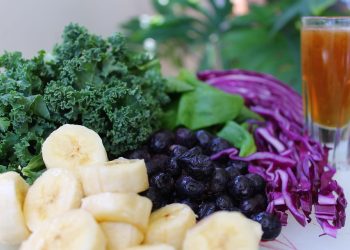Sustainable Weight Loss: Beyond the Diet Fad Merry-Go-Round
Tired of yo-yo dieting? Frustrated by restrictive plans that promise rapid weight loss but leave you feeling deprived and eventually lead to weight regain? You’re not alone. The allure of quick fixes is strong, but the truth is that sustainable weight loss isn’t about deprivation; it’s about making lasting lifestyle changes that support your overall health and well-being.
This article explores the principles of sustainable weight loss, moving away from the unsustainable and often harmful practices of diet fads. We’ll delve into evidence-based strategies that prioritize long-term health and a positive relationship with food.
Why Diet Fads Fail: A Look at the Underlying Issues
Before we dive into sustainable strategies, let’s understand why diet fads are so ineffective in the long run:
- Extreme Restriction: Many fad diets severely restrict calorie intake or eliminate entire food groups. This can lead to nutrient deficiencies, muscle loss, and a slowed metabolism.
- Unsustainable Practices: Diets that require drastic changes to your eating habits are often difficult to maintain once the initial motivation wanes.
- Psychological Impact: Restrictive diets can foster feelings of guilt, shame, and anxiety around food, potentially leading to disordered eating patterns.
- Metabolic Adaptation: When you drastically reduce calorie intake, your body adapts by slowing down your metabolism to conserve energy, making it harder to lose weight and easier to regain it later.
- Lack of Individualization: Fad diets are often one-size-fits-all approaches that don’t account for individual needs, preferences, or health conditions.
Instead of focusing on quick fixes, let’s shift our attention to creating healthy habits that you can maintain for a lifetime.
The Pillars of Sustainable Weight Loss
Sustainable weight loss is built upon a foundation of balanced nutrition, mindful eating, regular physical activity, and stress management. Let’s explore each of these pillars in detail:
1. Balanced Nutrition: Fueling Your Body for Success
Forget restrictive rules and embrace a balanced approach to eating. This means focusing on whole, unprocessed foods that provide your body with the nutrients it needs to thrive.
- Prioritize Whole Foods: Emphasize fruits, vegetables, lean proteins, whole grains, and healthy fats. These foods are nutrient-dense and provide sustained energy.
- Focus on Portion Control: Pay attention to serving sizes to ensure you’re consuming an appropriate amount of calories for your individual needs. Using smaller plates and measuring portions can be helpful.
- Don’t Eliminate Entire Food Groups: Unless you have a medical reason to do so, avoid completely cutting out entire food groups. This can lead to nutrient deficiencies and make it harder to stick to your eating plan long-term.
- Read Food Labels: Become familiar with reading food labels to make informed choices about the foods you’re consuming. Pay attention to serving size, calories, macronutrients (protein, carbohydrates, and fats), and added sugars.
- Hydrate Adequately: Drink plenty of water throughout the day. Water can help you feel full, boost your metabolism, and improve overall health.
Example: Instead of a processed breakfast cereal loaded with sugar, opt for a bowl of oatmeal with berries and nuts. For lunch, choose a salad with grilled chicken or fish and a variety of colorful vegetables. For dinner, try baked salmon with roasted vegetables and quinoa.
2. Mindful Eating: Reconnecting with Your Body’s Signals
Mindful eating involves paying attention to your body’s hunger and fullness cues, and eating with intention and awareness.
- Eat When You’re Hungry: Don’t wait until you’re starving to eat. Pay attention to early hunger cues and eat when you feel comfortably hungry.
- Eat Slowly and Savor Your Food: Put down your fork between bites, chew your food thoroughly, and pay attention to the taste, texture, and aroma of your food.
- Eliminate Distractions: Turn off the TV, put away your phone, and focus on your meal.
- Listen to Your Fullness Cues: Stop eating when you feel comfortably full, not stuffed.
- Differentiate Between Physical and Emotional Hunger: Are you truly hungry, or are you eating to cope with emotions like stress, boredom, or sadness?
Example: Before reaching for a snack, ask yourself if you’re truly hungry or if you’re eating out of boredom. If you are hungry, choose a healthy snack like a piece of fruit or a handful of nuts and eat it mindfully, paying attention to the flavors and textures.
3. Regular Physical Activity: Moving Your Body for Health and Well-being
Physical activity is crucial for weight loss and overall health. Aim for at least 150 minutes of moderate-intensity aerobic exercise or 75 minutes of vigorous-intensity aerobic exercise per week, plus strength training exercises at least two days per week.
- Find Activities You Enjoy: Choose activities that you find fun and engaging, so you’re more likely to stick with them long-term. This could include walking, running, swimming, cycling, dancing, or playing sports.
- Incorporate Movement into Your Daily Life: Take the stairs instead of the elevator, walk during your lunch break, or park further away from your destination.
- Set Realistic Goals: Start slowly and gradually increase the intensity and duration of your workouts over time.
- Make it a Habit: Schedule workouts into your calendar and treat them like important appointments.
- Strength Training is Key: Incorporate strength training exercises to build muscle mass, which helps boost your metabolism and burn more calories even when you’re at rest.
Example: Instead of spending your evening watching TV, go for a brisk walk with a friend or take a dance class. Join a local sports team or find a workout buddy to help you stay motivated.
4. Stress Management: Taming the Cortisol Monster
Chronic stress can lead to increased cortisol levels, which can promote weight gain, particularly around the abdomen. Finding healthy ways to manage stress is essential for sustainable weight loss.
- Practice Relaxation Techniques: Try meditation, yoga, deep breathing exercises, or spending time in nature.
- Get Enough Sleep: Aim for 7-8 hours of quality sleep per night. Sleep deprivation can increase cortisol levels and lead to cravings for unhealthy foods.
- Connect with Others: Spend time with loved ones and engage in social activities.
- Engage in Hobbies: Make time for activities that you enjoy and that help you relax and de-stress.
- Seek Professional Help: If you’re struggling to manage stress on your own, consider seeking help from a therapist or counselor.
Example: Take a few minutes each day to practice mindfulness meditation. Before bed, create a relaxing routine that includes a warm bath, reading a book, or listening to calming music.
Building a Sustainable Weight Loss Plan: A Step-by-Step Approach
Here’s a step-by-step approach to creating a sustainable weight loss plan that works for you:
- Set Realistic Goals: Aim for a gradual weight loss of 1-2 pounds per week. This is a sustainable rate of weight loss that is more likely to be maintained long-term.
- Track Your Progress: Keep a food journal, track your physical activity, and monitor your weight regularly. This will help you stay accountable and identify areas where you can make improvements.
- Make Gradual Changes: Don’t try to change everything at once. Start by making small, sustainable changes to your eating habits and activity levels.
- Be Patient and Persistent: Weight loss is a journey, not a destination. There will be setbacks along the way, but don’t get discouraged. Just keep moving forward and focus on making progress over time.
- Seek Support: Surround yourself with supportive friends, family members, or a qualified healthcare professional who can provide guidance and encouragement.
- Celebrate Your Successes: Acknowledge and celebrate your achievements along the way, no matter how small. This will help you stay motivated and maintain momentum.
Overcoming Common Challenges
Weight loss is rarely a linear process. Here are some common challenges you might face and how to overcome them:
- Plateaus: It’s normal to experience plateaus during weight loss. When this happens, re-evaluate your eating habits and activity levels to see if you need to make any adjustments.
- Cravings: Cravings are often triggered by stress, boredom, or emotional eating. Identify your triggers and find healthy ways to cope with them.
- Social Situations: Navigating social situations can be challenging when you’re trying to lose weight. Plan ahead, bring healthy snacks or meals with you, and don’t be afraid to politely decline unhealthy options.
- Emotional Eating: If you tend to eat when you’re feeling stressed, sad, or bored, find alternative coping mechanisms like exercise, meditation, or spending time with loved ones.
The Importance of Professional Guidance
While this article provides general information, it’s essential to consult with a qualified healthcare professional, such as a registered dietitian or a doctor, for personalized guidance. They can assess your individual needs, provide tailored recommendations, and help you develop a sustainable weight loss plan that is safe and effective for you.
Conclusion: Embracing a Healthier, More Sustainable You
Sustainable weight loss is not about quick fixes or restrictive diets. It’s about making lasting lifestyle changes that support your overall health and well-being. By focusing on balanced nutrition, mindful eating, regular physical activity, and stress management, you can achieve your weight loss goals and maintain them for the long term. Remember to be patient, persistent, and kind to yourself throughout the process. Embrace the journey, celebrate your successes, and enjoy the benefits of a healthier, more sustainable you!
FAQs: Your Questions Answered
- Q: How quickly should I expect to lose weight with a sustainable approach?
- A: Aim for a gradual weight loss of 1-2 pounds per week. This is a sustainable rate of weight loss that is more likely to be maintained long-term.
- Q: What if I have a “cheat day”? Will that ruin my progress?
- A: One “cheat day” or indulgence won’t ruin your progress. It’s important to maintain a balanced approach and not deprive yourself completely. Just get back on track with your healthy eating habits the next day.
- Q: Is it necessary to count calories for sustainable weight loss?
- A: While counting calories can be helpful for some people, it’s not necessary for everyone. Focusing on portion control, mindful eating, and choosing whole, unprocessed foods can be just as effective.
- Q: What are some healthy snack options for weight loss?
- A: Some healthy snack options include fruits, vegetables with hummus, a handful of nuts, Greek yogurt, or a hard-boiled egg.
- Q: How can I stay motivated during the weight loss process?
- A: Set realistic goals, track your progress, celebrate your successes, find a workout buddy, and remind yourself of the reasons why you want to lose weight.
- Q: Can I still eat my favorite foods while trying to lose weight?
- A: Yes, you can still enjoy your favorite foods in moderation. Focus on portion control and make healthier choices most of the time.
- Q: What are some effective strategies for dealing with cravings?
- A: Identify your triggers for cravings, find healthy substitutes for your cravings, practice mindful eating, and distract yourself with other activities.
- Q: How important is sleep for weight loss?
- A: Sleep is very important for weight loss. Sleep deprivation can increase cortisol levels and lead to cravings for unhealthy foods.
- Q: What kind of exercise is best for weight loss?
- A: A combination of aerobic exercise and strength training is best for weight loss. Aerobic exercise burns calories, while strength training builds muscle mass, which helps boost your metabolism.
- Q: When should I seek professional help for weight loss?
- A: If you have any underlying health conditions, are struggling to lose weight on your own, or have concerns about your eating habits, it’s best to seek professional help from a registered dietitian or a doctor.












